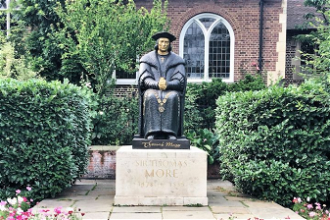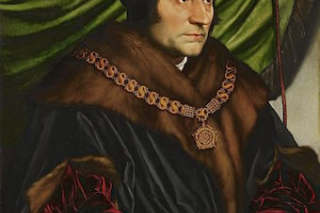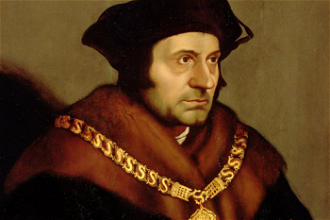Church welcomes new role for St Thomas More
The news that St Thomas More has been officially recognised as the patron saint of statesmen and women has been welcomed by the church. St Thomas' patronage was confirmed by Pope John Paul II in recognition of his commitment to the principles of the common good to safeguard true social justice and build peace between individuals and nations.
Bishop Howard Tripp, who chairs the committee responsible for advising the Catholic Church in England and Wales on issues involving public life, described More as a "man for whom gospel values were an active and vital part his public life".
"For many who play a role in public life today," the bishop continued, "there is frequently a struggle between the demands of their role in public life and their conscience as formed by faith and the teachings of the Church. People in public life are engaged in an honourable vocation. They may be faced with the various issues and dilemmas that demand responses that are not easy or simple to make. St Thomas More is therefore a role model for politicians and those involved in the various tasks of public life, such as councillors, lawyers and members of Parliament. "We welcome this act by the Pope in recognition of the life and work of St Thomas More, which also reflects the lives and works of many unknown people involved in public life."
Thomas More (1478-1535) made many significant contributions to society in his roles of judge, legislator, diplomat, statesman and family man that have lasted over the centuries. His book 'Utopia' is still studied and he is considered to be one of the founders of the study of English Common Law through his work on the interpretation and formulation of laws. He was charged with treason for opposing King Henry VIII's claim to be head of the Church and was executed in 1535. He was canonised in 1935.
31 October 2000


















